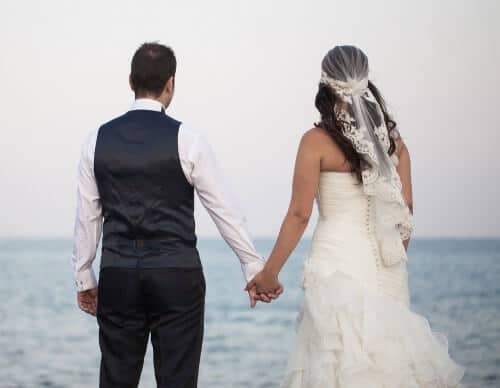Ahead of Valentine's Day, which will be celebrated on Friday, a new study conducted at the University of Haifa, in collaboration with the University of Central Florida, reveals that the characteristics of those with high emotional intelligence will allow them to deal with marital problems in a better way and, as a result, be more satisfied in married life. Unfortunately for the couple - they will not benefit from these qualities in the same situations

In preparation for Valentine's Day, which will be celebrated this Friday, good news for the newlyweds: did you marry someone with high emotional intelligence? This does not guarantee that you will deal with crises effectively, or that it will affect your level of satisfaction with married life, according to a new study conducted at the University of Haifa and published in the prestigious Journal of Family Psychology. "A person with high emotional intelligence who perceives his and his partner's marital coping ability as good, will not necessarily be aware that she does not think like him. This situation is problematic because it creates expectations and perceptions that interfere with relationships," said Prof. Moshe Zeidner, the scientific director of the Laboratory for Intercultural Research of Personality and Emotion at the University of Haifa.
The first year of married life entails many situations that may be a source of stress: redefining roles and existing relationships or accepting situations that were considered temporary until now as something permanent. The ability to deal together with problems on the background of this situation sometimes requires a high ability to understand the other and it affects the satisfaction of the couple with the married life and the relationship in general. That's why Prof. Zeidner and Dr. Iris Kaluda from the Department of Counseling and Human Development at the University of Haifa together with Prof. Gerald Mathews from the University of Central Florida decided to check whether the level of emotional intelligence affects the marital ability of newly married couples to deal with stressful situations, and how it will affect on the satisfaction of married life.
100 heterosexual couples in the first year of marriage aged 20-32, who passed emotional intelligence tests, participated in the study. In order to evaluate how the spouses deal with stressful situations that require marital coping, the subjects were asked to rate how they think they deal with such situations, and how their spouses deal with them. The couples were asked about the form of communication in stressful situations (if they or their partner informs that they are currently in a stressful period or guide the other on how to help), expressions of marital support (if they or their partner support and encourage), delegation of authority and division of the burden of tasks (if they or their partner will undertake certain tasks to facilitate the other) and more.
The findings show that the higher a person's level of emotional intelligence, the higher his satisfaction with married life. Also, it was found that those with high emotional intelligence perceived their ability to deal with conflicts, their ability to forgive their partner easily and their and their partner's common marital coping as higher compared to subjects without high emotional intelligence.
However, despite the optimistic perception of those with emotional intelligence on marital reality, no relationship was found to the effect of the level of emotional intelligence of one of the spouses on the ability to actually cope with the couple, nor on the spouse's satisfaction with married life. "A high level of emotional intelligence benefits only its owner and does not project onto the partner or the way the two deal with stressful situations," said Prof. Zeidner. According to him, this phenomenon is called the 'actor effect', and it stands in contrast to prevailing assumptions to this day according to which a high capacity for emotional intelligence in one of the spouses does "transfer" in a certain way to the other.
According to the researchers, a possible explanation for the research findings is the tendency of those with high emotional intelligence to be satisfied with themselves and therefore to see the marital reality through rose-colored glasses. They will appreciate the effort invested by them and by their partners in marital dealings as high, sometimes maybe even more than it really is. This assessment may be misleading and in such cases will negatively affect the partner's satisfaction with married life.
"A person with high emotional intelligence who perceives his and his partner's marital coping ability as good, will not necessarily be aware that she does not think like him. This situation is problematic because it creates expectations and perceptions that interfere with the relationship," concludes Prof. Zeidner, who is currently planning the next study in which behavioral indicators of spouses will be examined when dealing with crisis situations.

5 תגובות
And here a study is described that shows that there is a reciprocal effect on the satisfaction with married life
http://galileo.allmag.co.il/page/17093
Why do you need to repeat a paragraph-long quote twice? It's a long text anyway
"News for the new haters"?
There are many different types of emotional intelligence
There is also no correlation between the percentage of cheaters and emotional intelligences
Don't kid yourself, emotional intelligence is just one trait out of all the many traits in a person's personality.